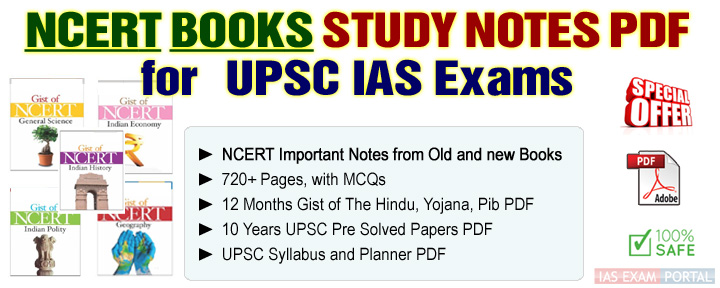(HOT) UPSC Current Affairs 2025 PDF
NEW! The Gist (NOV-2025) | E-BOOKS
Importance of NCERT BOOKS for UPSC Exams (Why, What, How)

Importance of NCERT BOOKS for UPSC Exams (Why, What, How)
This very article may the first one you might be reading for the journey that you have chosen to become a civil servant. NCERT books can be considered as the first step out of many to conquer this challenging examination. These books are so well articulated and unbiased that you may take its information as a complete truth and make factual notes out of it especially for the history and geography. Now you might be asking the same question and facing the same dilemma which every beginner has to tackle which is about why to study NCERTs when there are so many books/coaching note/online materials/topper notes already circulating in the offline and the online world? And why not skip these books for the last and just give a passing reference once you get to the finishing line of the syllabus?
Part 1: Why NCERT books are important?
Explanation: Being the most basic books and written in very simple language, lucid and neutral perspective makes NCERTs as the base for the entire preparation. One will get most of their basic covered for the geography and history from these books. Secondly, mains answer writing language should be similar to the writing style of these books which make them as the fundamental element while preparing for the Mains examination.
Now let us analyse from Prelims and Mains perspective:
- Every year at least 35-40 prelims questions are directly asked from the NCERTs.
-
If you read one book for the prelims it also comes handy in the mains. For Example, Geography NCERTs of class 11 and 12 and History NCERT of class 10 and 11 are the most comprehensive books which must be read by every aspirant.
- It helps in planned study otherwise, you may be lost in the vast ocean of data and coaching materials.
- If you are planning to choose humanities optional and you are from the non-humanities background, then study of these books will help in choosing the right optional and further, it may help in your optional paper too.
NCERT E-books PDF are available in English Medium and Hindi Medium for FREE! download.
What to read from NCERTs?
- In the history books, read it from the prelims and mains perspective in different ways, however, common to both is the TIMELINE. Therefore here factual knowledge is very important along with some contextual memory.
- Geography NCERTs: Treat them as the bible for the geography section of the prelims and the mains examination. Learn all the maps, rivers, mountain ranges, passes etc.
- Art and culture NCERT of the 11th standard is very important for the mains examination and it covers the “art and culture” section of the GS-1.
- Polity NCERT: Don’t make notes from here just read it as an important book for the Essay writing exercise of the Mains examination. It is more on the philosophical lines that the factual one and UPSC asks mostly factual questions.
- Sociology NCERTs will provide the idea that how our society is continuously evolving into new moving equilibrium and there are many conflicts, may perspectives and the explanation to the many social factors especially issues related to the women, children, caste, class, deprived section of the society etc. Therefore read them according to the GS-1 mains syllabus and its society part.
- Environment and Biology NCERTs are important because every year there will be 10-15 questions will be from this area.
How to read NCERTs?
This is the part where one has ample of resources and multiple ways. You may choose whatever suits you the best as per your capability and the planning. For example, One may start with a section such as a history and will read all history NCERTs. Other may move from class 6 NCERTs to Class 7 NCERTs to 8,9,10,11 and finally 12th standard. However, the most optimal way of doing NCERTs is:
- Underline in the 1st reading.
- Read and optimise the underlined stuff in the 2nd reading.
- Make crisp notes of NCERTs in the final reading and from now onwards forget those books and just rely on your notes.
- Revise them monthly and after 4-5 iterations, you will reach the level that you may require around 4-5hours only to revise entire NCERT books from class 6 to class 12.
- Always remember, it's not about reading and finishing the books but to remember those concepts, facts then recall them in the prelims and reproduce them in the mains examination.
Thus NCERTs must be studied and prepared in such a way that it can be revised in 10-12 hours only. Never give up on the hard work, it will pay off someday if not today. All the best!!!


